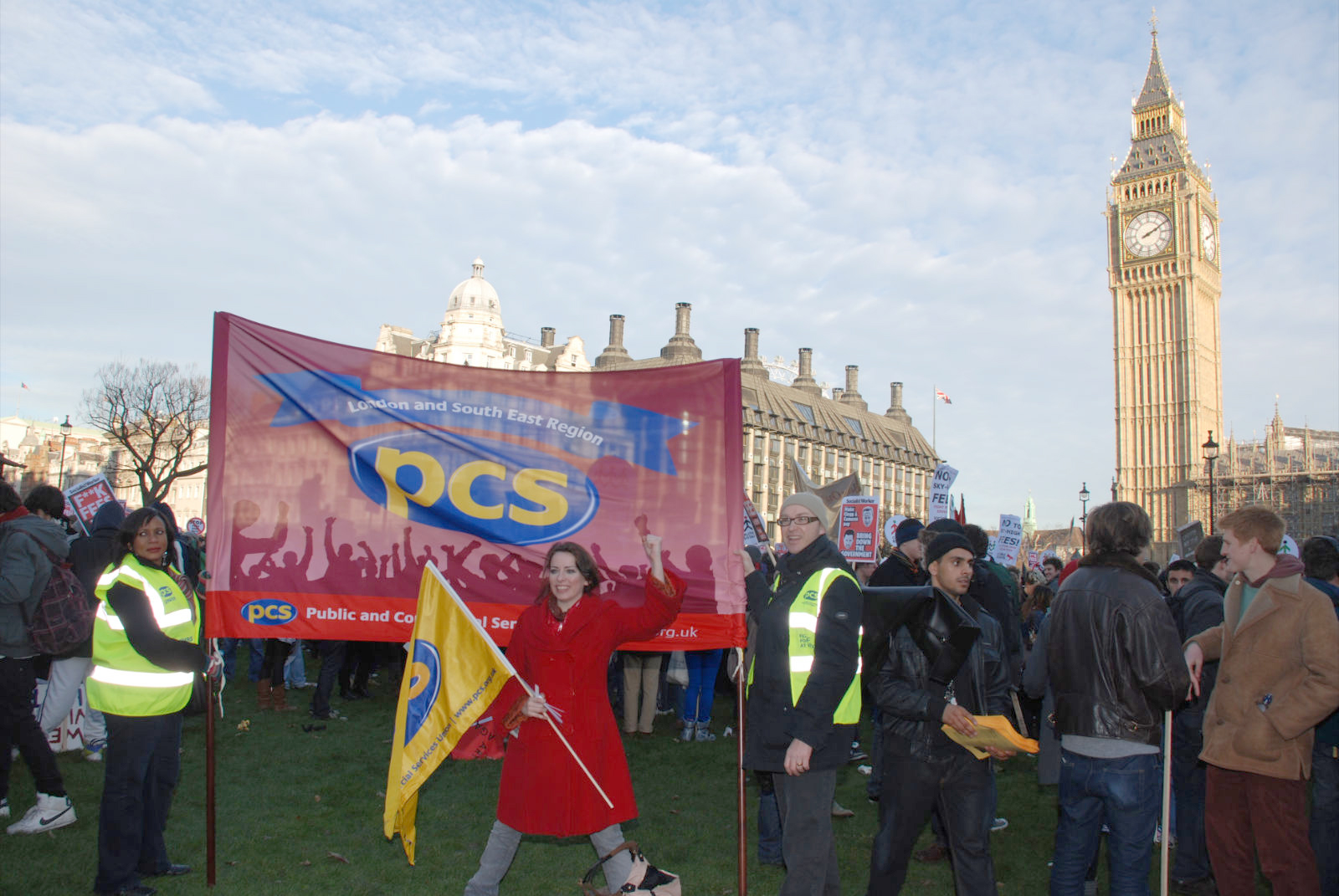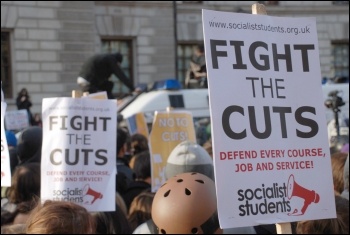One of the key questions facing the education movement is how it relates to workers, trade unions and the wider anti-cuts movement as a whole.
Ben Robinson, Chair, Youth Fight for Jobs
On 29 January, young workers are organising a demonstration in Manchester; however, scandalously, the Socialist Workers Party (SWP) argued for students to demonstrate separately in London on the same day.
The Public and Commercial Services Union (PCS) has been one of the most militant trade unions, forcing back the government on a number of issues and defending its members’ conditions.
Within that, its young members have played a key role and the PCS Young Members Network is one of the most vibrant and dynamic in the entire trade union movement.
The PCS NEC agreed, on 8 December, to organise a demonstration in support of the TUC youth rally in Manchester on 29 January.
This was discussed and support agreed by the London Student Assembly (LSA), which also agreed to support the National Shop Stewards Network Conference on 22 January.
There is clear momentum behind a demonstration in Manchester. At a planning meeting on 14 December for a national student assembly, the SWP argued that students need a national demonstration in London on that day.
After many students had left the meeting, a vote on this was unfortunately pushed through, with a call going out to the UCU to organise such a demonstration.
Earlier in that day though, Sally Hunt, UCU General Secretary had been speaking in favour of not only the UCU, but the entire trade union movement supporting the demonstration in Manchester!
A united demonstration of young workers and students would be a massive step forwards. The education movement has blazed a trail, and shown that mass movements can force the government back – EMA has been saved in Wales and Scotland, and university fees in Wales frozen at the present level.
Many workers have taken inspiration and heart from the successes that have been won, and are organising workplace and community action against the cuts, including strike action.
Students and workers marching side by side
Young workers will be to the fore of this and, for students and workers to be marching side by side will strengthen the entire movement against the brutal cuts.
It is also extremely irresponsible for the Socialist Workers Party to create division between the UCU and other left-led trade unions.
There is a clear desire for united industrial action of workers, and amongst those unions starting to organise strike action there have been discussions about coordinating this action.
At such a stage in the struggle, any division between unions fighting back has to be fought against tooth and nail.
It is not possible for a meeting of 60 students to decide on the policy of national trade unions, and Youth Fight for Jobs and Education (YFJ and YFE) argued for the decision to be delayed until the trade unions discussed together and came to an agreement.
However, presumptuously, the SWP argued that the meeting must take a decision. This highlighted where the SWP want to take the student movement – repeating their past position of ‘student power’ and ‘student vanguardism’ – and brought into question any national student assembly organised under this rotten political direction.
YFJ and YFE argue for a national student assembly where local education anti-cuts campaigns and trade unions send delegates to represent the movement, and democratically discuss the way forward for the education movement.
This needs to be held as soon as possible, but crucially needs to be building alongside the broader fightback against cuts, rather than counterposed to it.










